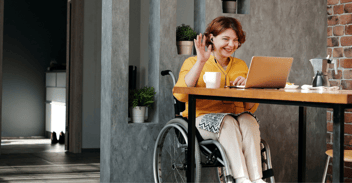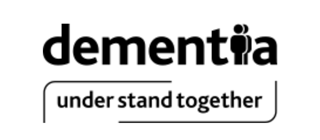
In Ireland 65% of people over 65 will be living with two or more chronic conditions. A Chronic condition is typically defined as any illness that lasts for six months or more. While chronic conditions are not curable, they can be managed with the correct medication or medical intervention.
Examples of Chronic Illnesses might include:
- Asthma
- Chronic obstructive pulmonary disease (COPD)
- Arthritis
- Various autoimmune conditions such as Crohn’s, Colitis, etc.
Today, only 1 in 10 people with a chronic illness have access to assistive technology products (World Health Organization)
Assistive Technology can offer a holistic approach to supporting those living with a Chronic Illness who are interested in living independently. Assistive technology devices might include;
- Smart devices such as personal alarms, pendants, etc.
- Mobility assistance i.e., stair lifts
- Digital prompts or reminders
How can Assistive Technology help someone living at home with a Chronic Illness?
How Chronic Illness impacts the individual will look different for everyone. Two people could have the same chronic illness, but they find different solutions work best for them. Assistive Technology can support someone living at home with a Chronic Illness in various ways;
Reduction in client risks
For many clients with compromised immune systems, living at home with assisted living technologies in place to support wellbeing is the safest way to avoid infection or additional risk.
Long-term solution
Living at home with a full-service solution maximises the client's independence and provides the best long-term solution towards supporting an individual with a long-term or chronic illness.
Allows the individual to live with privacy and dignity
Assistive Technology can help make independent living possible and allows those who wish to remain living at home, to do so.
HaloCare Smart Devices use motion detection to learn the individual's environment. The devices can detect unusual activities such as no movement for an extended period or if doors have been left open. Smart Devices do not use cameras and are a contactless solution to respect the privacy and dignity of the individual.
The wider impact of Assistive Technology on healthcare
The impact of Assistive Technology goes beyond improving the health of the individual user but also will have a positive impact on health professionals and socioeconomic benefits. These benefits include;
Reduction of prolonged hospital stays
Assistive Technology means that patients that are healthy enough to return home can do so, and with a combination of home support services and assistive living technologies in place, they can continue to receive quality care from the comfort of their own homes.
Improving hospital discharge times positively impacts the shortage of hospital beds, which will in turn help relieve pressure on health professionals.
Clinical Prioritisation of healthcare teams
Technology enabled care allows for improved prioritisation of clinical staff.
Smart Devices, one aspect of Assistive Technology, allows clinicians to collect vitals including blood pressure, without the need for the client to visit an acute hospital setting. Clinicians will have real-time access to patient vitals, which means data-driven decisions can be made regarding the patients' health, all remotely and from the comfort of the client's home.
This allows for improved prioritisation of clinical staff as virtual care reduces the requirement for home visits, without compromising on the quality of care the client receives.
Savings in the health economy
Virtual Healthcare technology can be significantly more cost-effective than hospital care, and often bespoke solutions are offered that can be tailored to the individual. This means that with the correct package in place, clients can recover in the comfort of their homes with continued access to support where required.

.png?width=352&name=Living%20at%20home%20with%20a%20non-visible%20disability%20blog%20cover%20(2).png)








